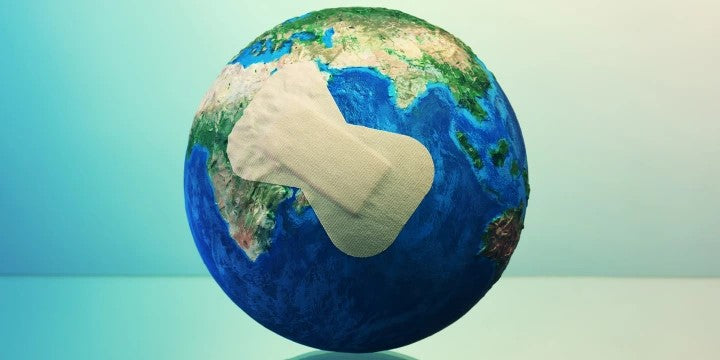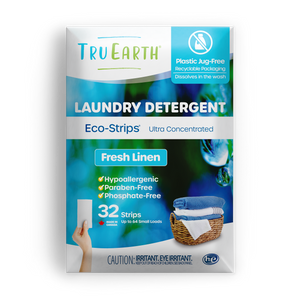When it comes to cleaning our homes, many of us rely on conventional cleaning products without giving much thought to their potential impact on our health and the environment.
However, the truth is that these products often contain harmful chemicals that can be detrimental to both our well-being and the planet. In this article, we will uncover the dirty truth about conventional cleaning products, explore their negative effects, and discuss the importance of transitioning to sustainable alternatives for a healthier and greener home.

Understanding the Harmful Chemicals
Conventional cleaning products often contain a cocktail of harsh chemicals that can have adverse effects on our health and the environment. Some of the common culprits include:
Volatile Organic Compounds (VOCs)
VOCs are chemicals that easily evaporate at room temperature, releasing harmful fumes into the air we breathe. These compounds have been linked to respiratory issues, allergic reactions, and even long-term health problems. Conventional cleaning products, such as aerosol sprays and air fresheners, often contain high levels of VOCs.
Phthalates
Phthalates are a group of chemicals used to add fragrance to cleaning products. Unfortunately, they are also known endocrine disruptors, meaning they can interfere with hormonal balance in the body. Exposure to phthalates has been linked to reproductive issues, developmental problems in children, and other health concerns.
Triclosan
Triclosan is an antibacterial agent commonly found in disinfectant cleaners and hand sanitizers. While it may sound beneficial, studies have shown that triclosan can contribute to the development of antibiotic-resistant bacteria and disrupt the delicate balance of our microbiome.
Negative Effects on the Environment
In addition to the potential health risks, conventional cleaning products also have a significant environmental impact. Here are some of the ways they contribute to environmental degradation:
Water Pollution
When we rinse conventional cleaning products down the drain, the chemicals they contain can end up in our waterways, polluting lakes, rivers, and oceans. These chemicals can harm aquatic life, disrupt ecosystems, and even find their way back into our drinking water sources.
Air Pollution
Using aerosol sprays and other cleaning products that release volatile organic compounds (VOCs) can contribute to indoor and outdoor air pollution. VOCs react with other pollutants in the air and form harmful compounds that can be detrimental to air quality and human health.
Packaging Waste
Conventional cleaning products are often packaged in single-use plastic containers that contribute to the growing problem of plastic waste. These containers often end up in landfills or pollute our environment, taking hundreds of years to decompose.
Transitioning to Sustainable Alternatives
Fortunately, sustainable alternatives allow us to maintain a clean and healthy home without sacrificing our well-being or the environment. Here are some steps you can take:
Read Labels and Choose Safer Options
Take the time to read product labels and look for cleaning products that are free from harsh chemicals. Look for certifications such as EcoLogo or Green Seal, which indicate that the product has undergone rigorous testing to meet environmental and health standards.
DIY Cleaning Solutions
Consider making your own cleaning solutions using simple and natural ingredients like vinegar, baking soda, and lemon juice. These ingredients are effective in cleaning and disinfecting and are safe for both your health and the environment.
Support Sustainable Cleaning Brands
Look for cleaning brands that prioritize sustainability and transparency. Seek out companies that use plant-based ingredients, offer refillable options to reduce packaging waste, and are committed to ethical and environmentally responsible practices.
Reduce, Reuse, Recycle
Embrace the principles of the circular economy by reducing waste, reusing containers and materials, and recycling whenever possible. Opt for concentrated cleaning products that require less packaging and choose reusable cleaning tools like microfiber cloths instead of disposable wipes.

The Importance of Educating Ourselves and Spreading Awareness
Education plays a vital role in the quest for a healthier and more sustainable future. It is essential that we educate ourselves about the harmful ingredients in conventional cleaning products and the impact they have on our well-being and the environment. By understanding the risks associated with these products, we can make more informed choices and take steps to minimize our exposure to harmful chemicals.
Furthermore, spreading awareness is crucial in encouraging others to join the movement towards sustainable cleaning practices. By sharing information about the dirty truth of conventional cleaning products, we can empower individuals to make positive changes in their cleaning routines. Whether it's through conversations with friends and family, social media platforms, or community events, we can create a ripple effect that leads to a collective shift towards safer and greener cleaning solutions.
Together, by educating ourselves and raising awareness, we can significantly reduce the use of conventional cleaning products and promote sustainable alternatives. Our choices have the power to protect our health, safeguard the environment, and contribute to a cleaner and more sustainable world for future generations.
Remember To Do Your Part For the Planet!
It's time to face the dirty truth about conventional cleaning products and take steps towards a cleaner, healthier, and more sustainable home. By understanding the harmful chemicals in these products and their negative effects on our health and the environment, we can make informed choices and transition to safer and greener alternatives.
Let's prioritize our well-being and the well-being of the planet by embracing sustainable cleaning practices and supporting companies that share our commitment to a cleaner future.


